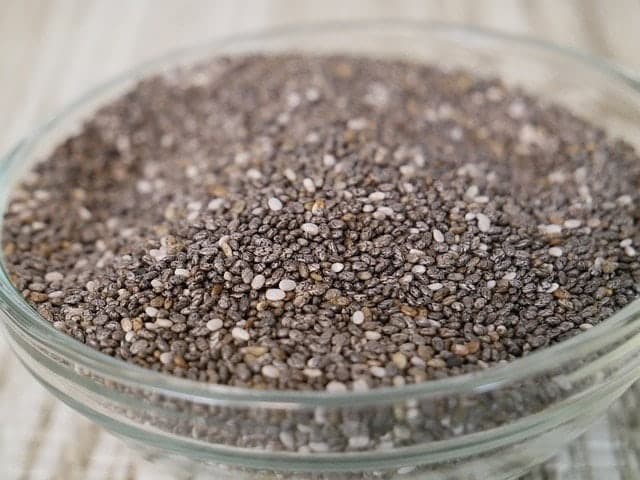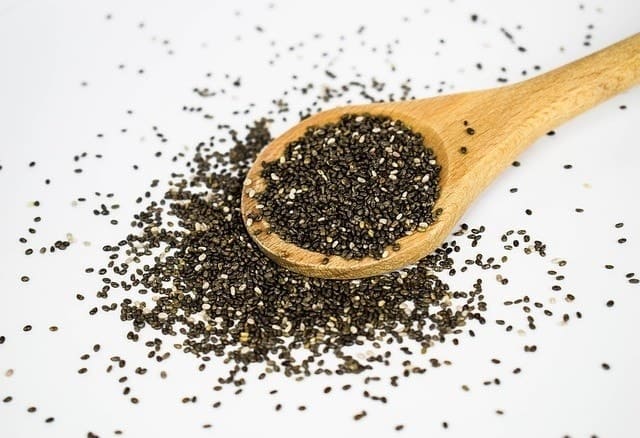Chia seeds are tiny seeds harvested from the Salvia hispanica plant, which is a part of the Mint family. They’re considered healthy foods for humans, and they’re also healthy for dogs. They don’t contain any toxins and are packed with essential nutrients for dogs.
So, feeding your dog a small portion of chia seeds is completely safe and fine. However, if you believe your dog has eaten too many, it’s important to alert your veterinarian. Here’s what you need to know about this tiny, powerful seed.
Health Benefits of Chia Seeds
Dogs are omnivores and are able to process and digest many plant-based foods efficiently. Chia seeds are extremely small and don’t pose a choking hazard to your dog. Their tiny size makes them great foods to add to dog food without your dog really noticing them.
It’s safe to serve chia seeds in both their dry and soaked forms. If the seeds are dry, make sure to be careful when feeding them to your dog because they can get caught in your dog’s throat and irritate it.
Chia seeds are considered a healthy food because of all the benefits. They contain the following essential minerals for dogs:
- Calcium
- Copper
- Iron
- Magnesium
- Manganese
- Phosphorus
- Selenium
Chia seeds are also excellent sources of alpha-lipoic acid (ALA), which is an omega-3 fatty acid that can help reduce cognitive dysfunction and help improve learning in senior dogs. It can also reduce the risk of developing osteoarthritis and help control inflammation.
These seeds can also be great for weight management. They can absorb more than 10 times their own dry weight, so the high water content can help dogs feel full and stay hydrated.

What To Do if Your Dog Eats Too Many Chia Seeds
You’ll only want to give your dog small quantities of chia seeds. Chia seeds contain a lot of fiber and fat, so too much can lead to varying degrees of digestive issues.
Some dogs may have difficulty digesting chia seeds because of the fiber and may end up having an upset stomach. They can also experience vomiting or diarrhea.
If it’s your dog’s first time trying chia seeds, only give it a small amount. Then, monitor its condition for any signs of digestive issues.
If your dog got into your pantry and ate a lot of chia seeds, you don’t have to be too alarmed. Try to get a good estimate of how much your dog ate. Then, keep track of any signs of an upset stomach, and provide plenty of water to keep your dog hydrated.
When To Contact Your Vet
If your dog displays symptoms and they persist for more than a day, contact your veterinarian for further instructions. It’ll be helpful to let them know how much chia seeds your dog has eaten and how long they’ve been showing symptoms.
If you have a dog with diabetes, high blood pressure, or any chronic illnesses, contact your veterinarian right away. Chia seeds affect blood sugar and blood pressure levels. So, they can potentially interfere with diabetes and hypertension medication.
Wrap-Up on Dogs and Chia Seeds
For the most part, chia seeds are healthy snacks for dogs. Sprinkling a small number of chia seeds over your dog’s food can add essential nutrients to their meals. You really only need to be concerned if your dog ate an exorbitant number of seeds and is showing signs of an upset stomach or if it has a chronic illness.
So, if you have healthy dogs that don’t mind the taste of chia seeds, feel free to find pockets of the day to feed them this nutritious snack.
Featured Image Credit: Pixabay














